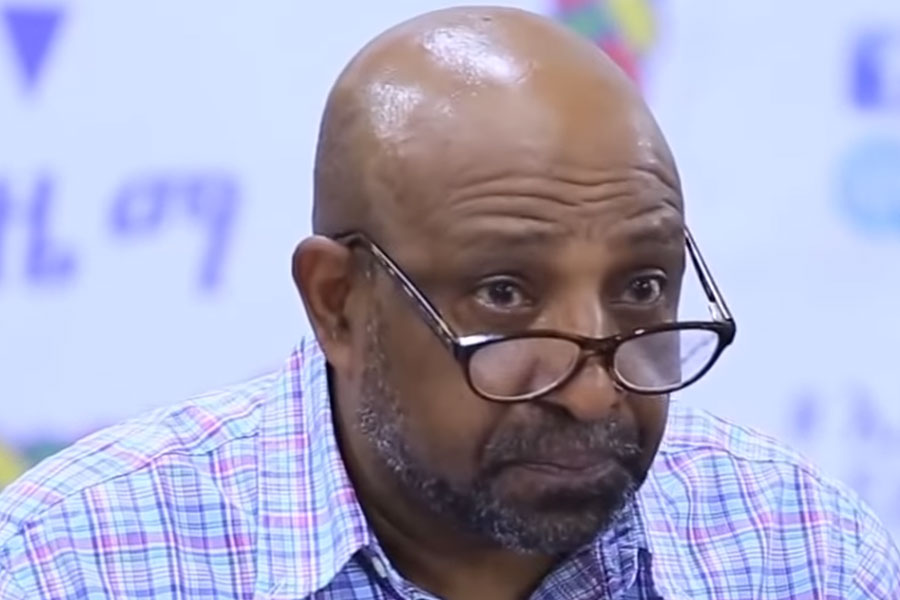
Fortune News | Jul 30,2022
A typical working day in Teferra Sileshi's life may look like it starts with him and his wife heading to their respective jobs in the morning. In reality, it starts much earlier than that. There is breakfast to be made, three children to wake up and dress, and lunches to pack before sending them off to school all before his office duties start.
With no extra helping hand in the family, Teferra and his wife have had to get the division of labour down to an art over the last few years, taking turns to cook, clean and look after their children as working parents.
The afternoons, once the children are back in their home, are also a shared responsibility. His wife, with the more flexible schedule of a university lecturer, is home when they arrive, and studying with their children, aged 12, 10 and five, will likely fall on the parent who is not cooking dinner. Once the kids are in bed for the night, then tomorrow's plans will be crafted. This was all before the Novel Coronavirus (COVID-19) changed everything.
With the pandemic mandating the closure of schools in mid-March, swift changes had to be made in the household to adapt to the situation. Initially, the earlier and unknown nature of the virus meant that the children barely went outside, exercise dropped to an all-time low, and waking up early became a thing of the past.
"We were not prepared," said Teferra. "It was challenging."
But soon enough, the children were assigned added responsibilities in the house to get their minds occupied and their bodies moving, meals dropped from three to two a day, and both Teferra and his wife started working from home to take care of their family around the clock. One undeniable benefit of this change has been getting to know their children better.
"You get to learn their behaviours and attitudes and learn about their personalities closely," he said.
But with that has come the bigger responsibility of being a full-time provider for all their needs. The community, neighbours and extended family which had shared their load before were no longer accessible. His children have also started asking about school, according to him.
"I see that they're worried about school and when it reopens," he said. "We're trying to keep them on their toes in order that they don't have time to sit and worry."
The reopening of schools is welcomed by him and his wife, despite some reservations about preparation. He believes that the psychological impacts will be hard to deal with without professional help if this continued for much longer.
The reopening comes after a nearly seven-month hiatus from school. Three weeks ago, the Ministry of Health recommended that schools be opened during an emergency meeting held by the parliament. This is welcome news to Teferra and many other families in the country - an overwhelming 90pc, according to preliminary findings by the Ministry of Education, as stated by UNICEF.
Reopening, however, has come with stringent requirements to maintain the safety of students and the community at large, which has many parents questioning whether or not schools are ready.
Andinet International School, a British-curriculum school with one of the highest fees in the city, where Teferra sends his three children, had recently been temporarily barred from reopening by the Ministry of Education following a complaint filed by the School's parent association. The prohibition came on the grounds of school payment violations, and the school was ordered to find a solution with the parents quickly.
Since the school is not operational, it was only reasonable that it reduce costs, but there was a disagreement on the amount, according to Teferra.
"The association took legal action, because we couldn't agree," he said.
In addition to payment disagreements, for parents that were not able to closely follow up on their children's education, the School's online learning strategy has left a lot to be desired, with little follow-up other than sending online assignments to the students, according to him.
Questions of safety concerns raised by many parents were left unanswered, and the school has even started registering new students in place of older ones whose parents were waiting for clarification before signing their children back up for school. A meeting has since then been initiated by the school with parents to resolve the matter.
Private schools, with an estimated 5.5 million students under their tutelage, vary in the extent of preparation with some already practising the new mode of learning.
Parents register their children for the autumn semester at St. Joseph School near Mesqel Square.
In the compound of Bingham Academy, another school in the city established over seven decades ago, the preparation for learning post-COVID-19 has been in full gear for the past couple of months. There, handwashing stations, temperature checks at drop-off points for students are all in full force, and a COVID-19 Master Handbook has been disseminated among teachers and parents alike since reopening two weeks ago.
This has instilled confidence among parents, according to Sandra Wiens, student health coordinator for the school's 300 students.
With an international staff and student body, the school has been operating on a hybrid learning system for the past two weeks since its re-opening.
The students come to school in the morning for core learning and have online afternoon classes for the less strenuous subjects like art. There was a series of Zoom meetings, and counsellors and teachers at the school provided both students and parents with resources and links to navigate this new method of learning, including follow-up personal phone calls with parents.
Training for teachers was also put in place after they initiated a teaching platform called Schoology, a virtual learning environment.
“We’re well equipped,” said Sandra. “We've been getting ready all summer.”
The school has also repurposed classrooms, and the precision has gone as far as measuring the space between desks to ensure students are within a safe distance from one another. Masks are mandatory at all times.
Though there are concerns raised by parents, the Handbook and a task force made up of staff has helped alleviate concerns for many, according to Sandra.
“We have a staggered intake at the moment,” said Sandra. “We'll have a certain period in the month where students will be able to rejoin classes.”
The Handbook stresses maintaining personal hygiene, minimising potential exposure, and protecting the environment. Students are advised to avoid using public transportation, and the staff have been provided with transportation to minimise risks.
The staff, consisting of 60 teachers and two counsellors, have adapted very well, and training sessions have been given to familiarise them with new teaching tools, according to Sandra.
There are estimated to be over 3,000 private and close to 50,000 public schools in the country, according to data from the Ministry of Education. In the public school realm, most of the support comes from the government and the community of the area, and though degrees may vary, preparations are also in place there as well.
Mezezo Elementary School, located in Amhara Regional State's Tarma Ber Wereda, is located over 150Km from the capital. The student body of 800 students has had only their textbooks to consult and study in the months they have been away from school.
The reopening is welcomed by most of the community, according to Tadesse Zebene, director of the school, which is also repurposing rooms to have more classrooms for students.
Teachers are getting ready to teach in two shifts starting October 19, the expected date of reopening. The school will be making the most of student clubs like The Girls, Anti-AIDS and Environment Protection to create awareness about the pandemic and methods of keeping students and parents safe.
Opened in 1955, it has been, like all public schools, providing education for free to students, aside from an annual 50 Br payment that goes to the salary of the librarian, cleaning staff and security. A 45-day crash course for its grade eight students is in place since they will be sitting for the countrywide qualification exams on November 30. This will mean teachers are expected to work more.
“The teachers are willing to make sacrifices,” said Tadesse, referring to the extra classes teachers have agreed to give with no extra pay. “It's now their turn to get on the front line and ensure the education of these students.”
Makeshift washing stations in addition to the regular taps in the school are in place here too, and 50 soap bars have been purchased by the school. Tadesse is confident that these supplies will see them through October with proper rationing.
“We're hoping that between the shared support of parents and the government, we'll be able to manage after that,” said Tadesse.
Currently, public service announcements are being conducted across neighbourhoods in the small town of mostly farmers surrounding the school. Here too, parents are worried about safety for their children.
“There was some concern from parents, but we're holding discussions and resolving those issues along the way,” he said. “Overall, parents are happy their kids are going back to school.”
Since the school cannot provide face masks, it is expecting to receive in-kind support from the government, which is in the process of purchasing reusable masks for the 26 million public students in the country. It has selected supplier factories to provide two masks per student, each expected to last up to 60 days.
“Wearing masks is one of the prerequisites for the reopening of schools,” said Yohanes Wogaso, director-general of School Improvement under the Ministry of Education.
This is one of the three main requirements, along with ensuring physical distancing and the provision of water and soap, basic needs to keep students clean.
A steering committee led by the Prime Minister is overseeing the main framework for the reopening at a federal level, and the work has included drafting the Safe School Operation Guideline, in the process of being finalised for the third and final time.
The Guideline is expected to be distributed among all schools in the coming week, according to Yohanes. The document is one of many, as guiding protocols for the reopening of schools were the first issues considered.
The implementation of the prerequisites fall upon a committee made up of student and teacher representatives along with parents and the education and health bureaus in the area. This same team will be the one reporting on the upkeep of these standards, and schools will remain open depending on their approval.
"The protocol also has the detailed prerequisites," said Yohanes. "We've been working on this for three months awaiting the green light to start school."
The second most important element is the reorientation of teachers, since COVID-19 has distorted the regular ways of learning and teaching.
"This is a time when students are now, more than ever, expected to teach themselves," he said. "The former methods have been rendered obsolete."
Psycho-social support, another salient element, has also been one of the main considerations by the government, and it will be rolled out, according to Yohanes.
"There will be instances where students might have lost their parents and have been impacted in one way or another by the pandemic," he said.
Along with the reopening of schools, an Infrastructure Analysis Strategy on the evaluation of all public schools in the country, has been carried out to understand whether schools can reopen in keeping with the necessities that the pandemic mandates. Additional work, such as fixing washrooms and building new classrooms had to be done.
Oromia Regional State has so far finalised building the most classrooms, completing over 31,000, trailed by the Amhara Regional State with over 6,000 classrooms.
The Global Partnership for Education provided 15 million dollars to support the Ministry of Education in the reopening and the necessary elements that need to be met. The funding, with the World Bank as the grant agent, will go toward enhancing hygiene and prevention of disease in schools and supporting catch-up learning.
This is only part of the cost.
A total of 135 million dollars is needed to prepare schools, and currently the budget is short by 115 million dollars, according to Adele Khodr, UNICEF Representative to Ethiopia.
UNICEF is currently seeking to fill in close to 14 million dollars in that gap, which will be allocated to provide water and sanitation facilities, classroom rehabilitation, and training for 40,000 teachers across the country. Part of the intended funding will also go to teaching children and their families to make masks at home.
It is with these qualifications in place that the re-opening of schools is expected to take place and, short of these precautions, they will remain closed, according to Yohanes.
The benefit-risk calculation for students to restart school involves numerous factors, according to a public health expert at the School of Health Sciences at Addis Abeba University, Abiy Seifu. He believes that re-opening is the way to go. One major factor to consider is that many students are deprived of food when they are kept out of school.
"The closure of schools has meant that they no longer get the much-needed food they were getting in their schools," he said.
The School Feeding Program, to which the expert refers, was feeding close to 400,000 students in the capital. This has been further compounded by parents who have lost their jobs due to COVID-19 and no longer have the means to provide for their family, making its importance even more pronounced, according to Abiy.
To a lesser degree and at the opposite of that spectrum is the problem of obesity and related health problems that some will be at risk for, according to him.
Children are over-eating and not exercising when they stay at home, and this can negatively affect their health and psyche to a dramatic degree, according to this expert, who says that a lack of peer-to-peer communication and exercise might lead to depression and anxiety among students.
Add in more screen time and memory loss coming from an extended stay away from schools, and the balance seems to tip toward the case for reopening.
True, on the other side of the coin, students going to school may lead to a spike and increased spread of the disease. But some would argue that children should not pay the price for the safety of older and at-risk members of the community, said the public health expert.
"But it doesn't have to be a zero-sum game," he said.
The reopening of schools can be done, step by step, carefully assessing what comes next and involving teachers and parents, according to him.
"It should be done with consideration for the status of cases and the local context," he said.
But adequate preparation may be everything, since that comes before any education, according to Tirussew Teferra (Prof.), project leader at the Ethiopian Education & Training Roadmap. Now, more than ever, the work needs to involve teachers, according to him.
“Teachers are the main actors and need to be part of the intervention," he said. "They know the students best, and closely involving them in the reopening process is the most important element.”
With added economic strain and students that will have forgotten what they have learned that may be coming back after enduring psychological trauma because of the pandemic, training for teachers is essential, he suggests.
“They need to be convinced of the goal and shown their role in it,” he said.
PUBLISHED ON
Oct 03,2020 [ VOL
21 , NO
1066]

Fortune News | Jul 30,2022

Commentaries | Oct 05,2019

Featured | Jan 07,2024
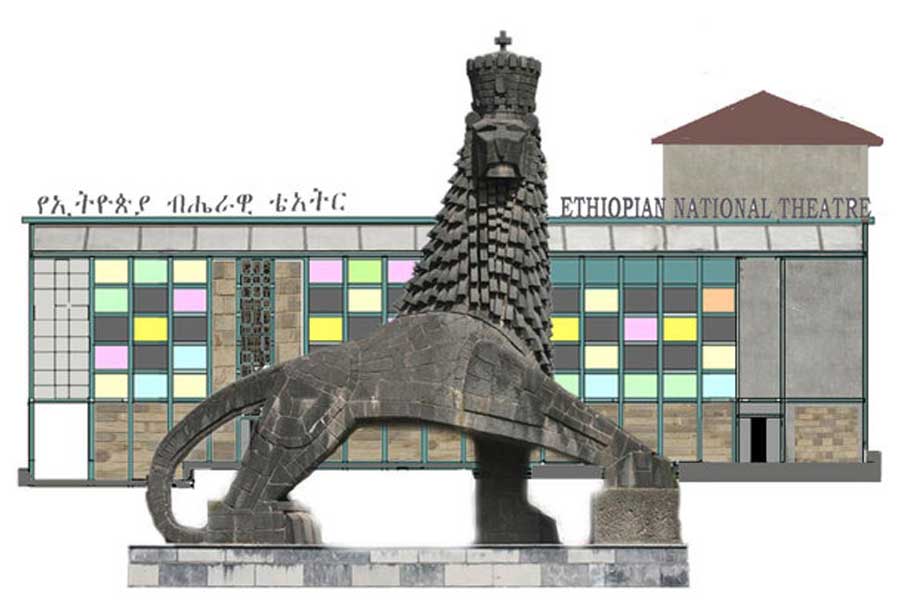
View From Arada | Mar 20,2021
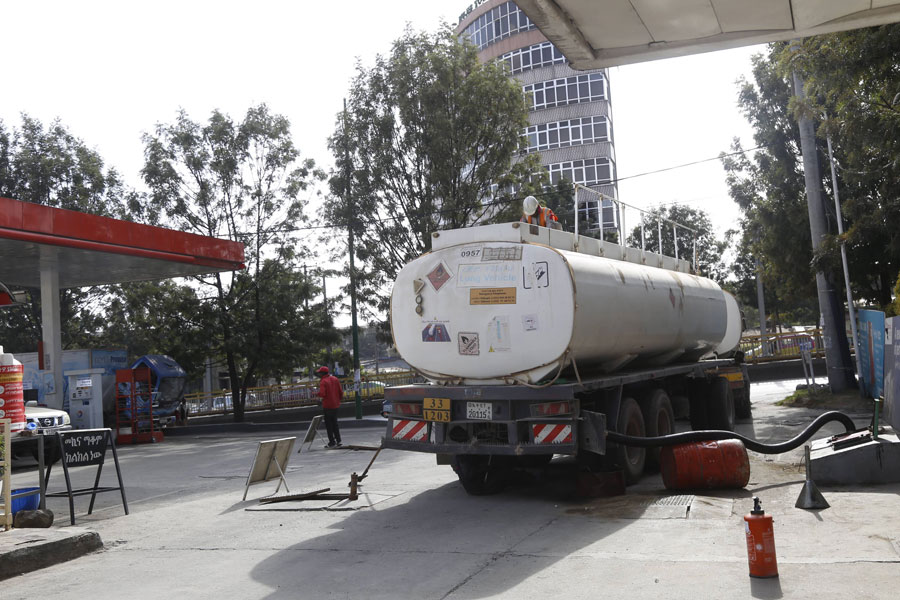
Fortune News | Jan 22,2022
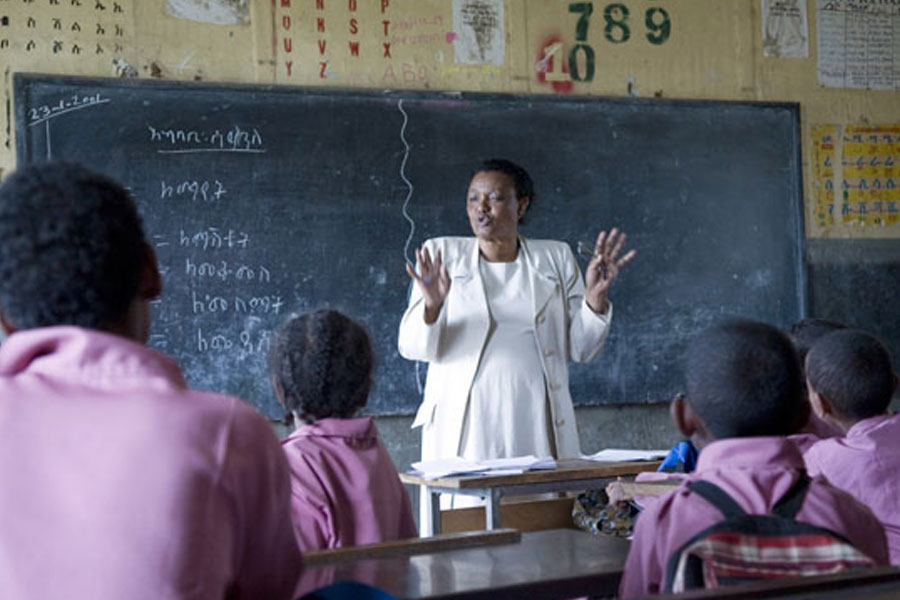
View From Arada | Jan 24,2021
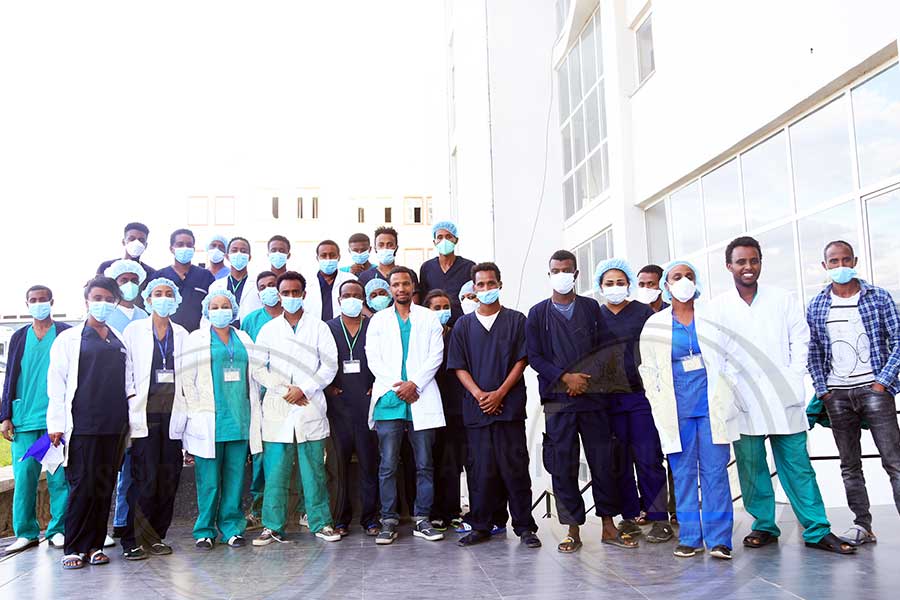
Covid-19 | Mar 21,2020

Radar | Jun 18,2022

Commentaries | Sep 27,2020

My Opinion | Feb 08,2020

Dec 22 , 2024 . By TIZITA SHEWAFERAW
Charged with transforming colossal state-owned enterprises into modern and competitiv...

Aug 18 , 2024 . By AKSAH ITALO
Although predictable Yonas Zerihun's job in the ride-hailing service is not immune to...

Jul 28 , 2024 . By TIZITA SHEWAFERAW
Unhabitual, perhaps too many, Samuel Gebreyohannes, 38, used to occasionally enjoy a couple of beers at breakfast. However, he recently swit...

Jul 13 , 2024 . By AKSAH ITALO
Investors who rely on tractors, trucks, and field vehicles for commuting, transporting commodities, and f...

Oct 25 , 2025
The regulatory machinery is on overdrive. In only two years, no fewer than 35 new pro...

Oct 18 , 2025
The political establishment, notably the ruling party and its top brass, has become p...

Oct 11 , 2025
Ladislas Farago, a roving Associated Press (AP) correspondent, arrived in Ethiopia in...

Oct 4 , 2025
Eyob Tekalegn (PhD) had been in the Governor's chair for only weeks when, on Septembe...